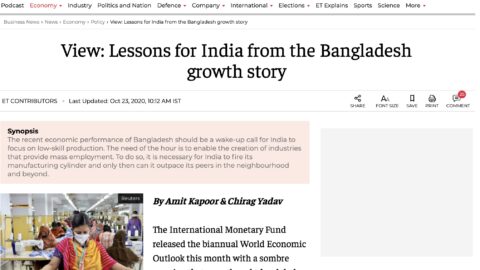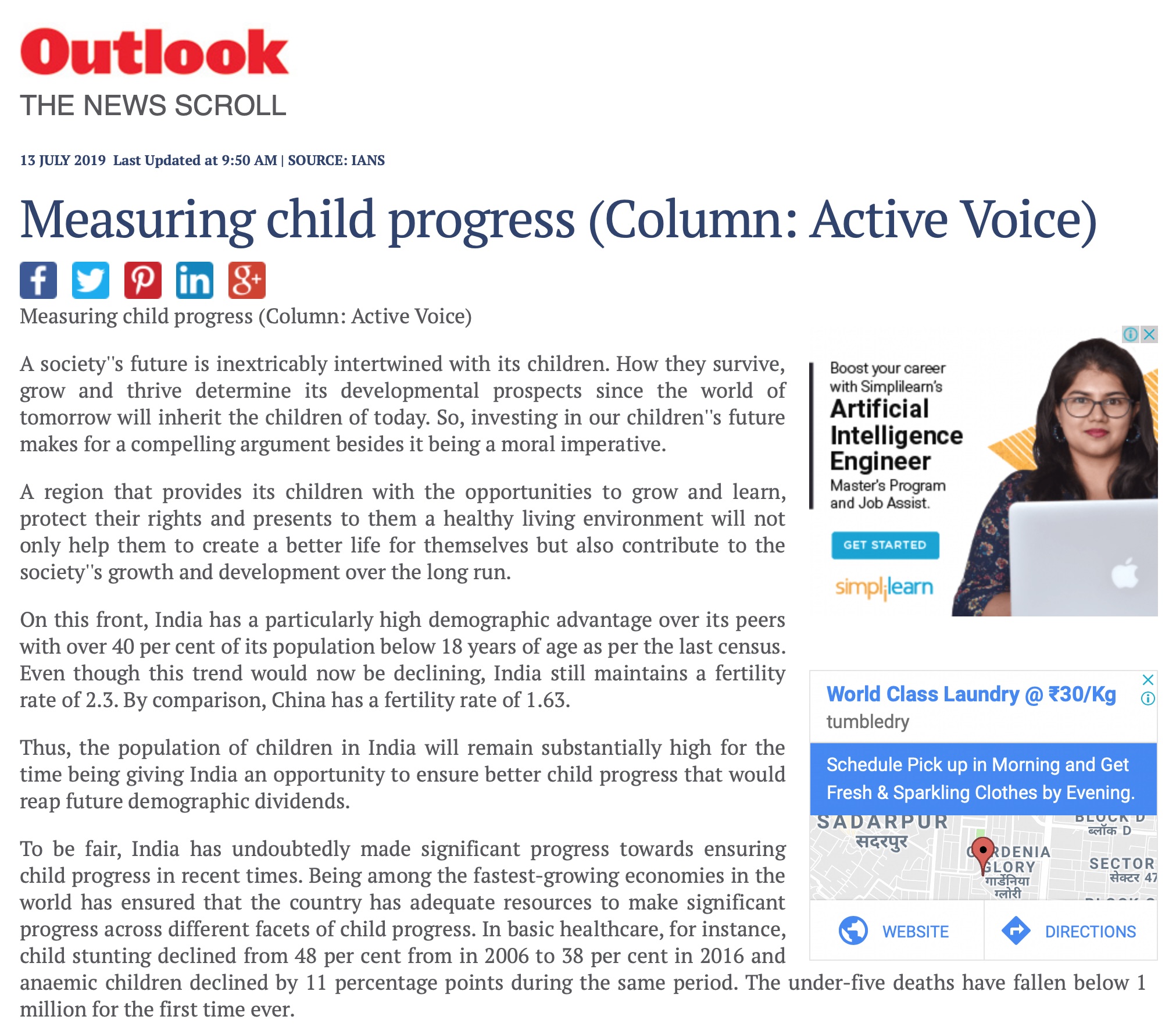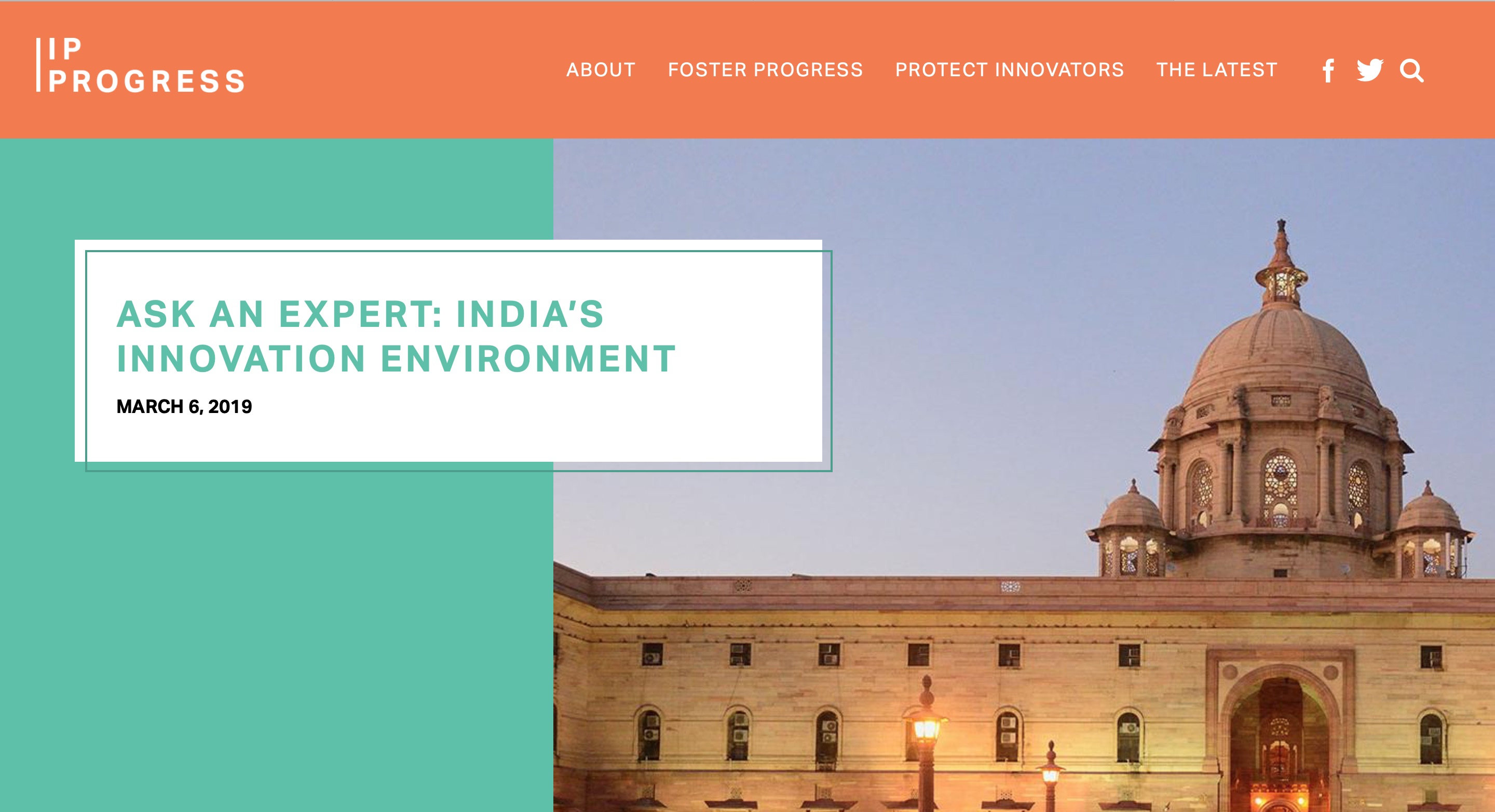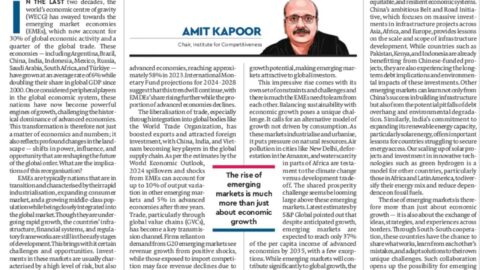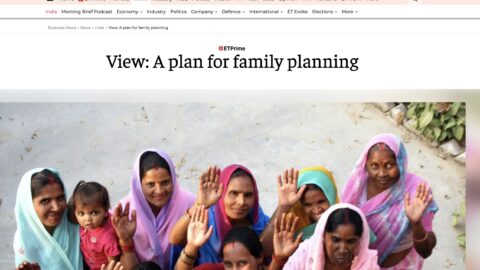How can the G20 reinvent green jobs in emerging economies?
Rebuilding our economies means rethinking about the future. The ongoing emergencies like climate change and decelerating progress to achieve the sustainable development goals are accelerating the need to shift towards greener economies. These economies are climate-resilient, low carbon and socially inclusive. Moving towards a green economy entails smart and coordinated policy response and the G20 can play a key role in supporting this transition.
Employment stands at the intersection of social, economic, and environmental dimensions of sustainable development. It is a launchpad of productive solutions for a greener economy. A green economy, to be prosperous and inclusive, it must generate decent jobs for all and hence the focus on green jobs ensures that the linkage between development and equity is strong. In this backdrop, the G20 has been discussing the relevance of just green transitions globally, to create an international enabling environments for all, and green jobs are integral to address the “just” aspect of any transition.
The concept of Green jobs gained popularity at the Rio+20 Conference on Sustainable Development where countries had to review their development policies in the backdrop of growing environmental challenges. The International Labor Organization, which has been leading Just Transitions program define Green Jobs as work in agricultural, manufacturing, research and development (R&D), administrative, and service activities that contribute substantially to preserving or restoring environmental quality. These jobs contribute towards reducing consumption of energy and raw materials, limiting greenhouse gas emissions, minimizing waste and pollution and protecting ecosystems. The idea has already gained much attention in the developed world and opportunities have opened, especially in the energy sector. It is estimated that green transitions will create 24 million jobs by 2030, far more than the 6 million that could be lost.
How can emerging economies in G20, like India tap into this opportunity? Unlike the developed world, developing economies lack the infrastructure, education and policy thrust to harness and in future to fill this growing need. It is therefore critical to understand that trajectory of green jobs in the global south have and will continue to be unique from that of the developed world and unless we gauge this diversity in green skills, our policy priorities, and efforts for greening the economy will be insufficiently centered only around the energy sector. How can the G20 under Indian presidency reinvent or rather align the concept of green jobs for developing countries like India to suit regional realities, resources, and experiences?
Alongside policy, a simultaneous shift in education is also essential to raise awareness and promote the dissemination of green skills. The current and future generations need to be trained in knowledge, abilities and value to live in and develop a sustainable and resource-efficient society. The transition to a low-carbon society will inevitably affect a systemic shift towards new services, products and production processes. Beyond hard technical skills, critical green skills for future include design thinking, creativity, adaptability, resilience, and even empathy. In India, traditional communities have a rich-repository of nature-based solutions and ecosystem-based approaches. Blending them with green skills can help emerging economies in the G20 to harness the benefits of a green transition without falling behind.
Ultimately a shift in policy and education would be inscrutable without adequate infrastructural support. As a premier multilateral forum with a mix of both the developed and developing countries, G20 can come together by channeling finance and technology through international cooperation. Without infrastructure, emerging economies cannot create sufficient jobs in sectors which require high-value skills such as in renewable energy. Investments in sectors like transportation, smart-electricity grids are prudent at times like this when the returns on green investment are growing. Beyond monetary benefits, it is also for humanity to survive and prosperously thrive on this planet. Emerging economies of the world today are perhaps the least responsible and yet most affected by the poly-crises. Therefore, even at the most basic level, investments in resilient infrastructure can contribute to environmental preservation and productivity while mitigating the impacts of future disasters.
Indian presidency’s agenda this year captured the fierce urgency and need for alternate development models. Alternate models also need alternate and creative thinking as they navigate through uncertain times. Green jobs are critical for inclusive and productive growth. Developing countries should reinvent the concept and harness opportunities offered in these changing times. To support this transition, G20 should come together with the right policies, unlock capital, disseminate green skills and scale up infrastructure for a sustainable future. Green Development as envisioned by India should also be a job-rich development.
The article was published with Business World on September 9, 2023.




